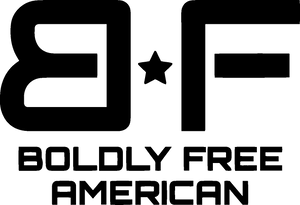In the digital age, social media platforms have become the primary channels for communication, information dissemination, and public discourse. However, the increasing trend of censorship on these platforms poses a significant threat to free speech and undermines the principles of the First Amendment. In this blog post, we'll delve into the dangers of social media censorship and why it's essential to uphold the right to freedom of expression in the digital realm.
The Rise of Social Media Censorship
In recent years, social media companies have faced mounting pressure to regulate content on their platforms in response to concerns about misinformation, hate speech, and harmful content. While these efforts are often well-intentioned, they have led to an increase in censorship, with platforms implementing policies to remove or restrict content deemed objectionable. Canceling, now a commonplace trend, involves public condemnation and ostracism of individuals or entities for their controversial actions or statements, often on social media platforms. This phenomenon has sparked debates about accountability, freedom of speech, and the power dynamics of online communities.
The Dangers of Censorship
-
Suppression of Dissenting Voices: Censorship on social media can silence dissenting voices and stifle meaningful public discourse. When platforms censor content based on subjective criteria, they risk marginalizing minority viewpoints and suppressing critical perspectives.
-
Undermining Free Expression: The First Amendment guarantees the right to freedom of speech, ensuring that individuals can express their opinions and ideas without fear of government censorship. However, social media censorship infringes on this fundamental right, as private companies wield immense power to control the flow of information and dictate what users can and cannot say.
-
Erosion of Democratic Principles: A thriving democracy depends on open and robust debate, where diverse viewpoints can be freely expressed and challenged. By censoring certain voices and perspectives, social media platforms undermine the democratic principles of transparency, accountability, and the marketplace of ideas.
Upholding the First Amendment
-
Transparency and Accountability: Social media companies must be transparent about their content moderation policies and decisions. Users have a right to know why their content is being censored and to appeal decisions that they believe are unjust.
-
Protecting User Rights: Platforms should prioritize protecting user rights, including the right to freedom of expression, while also addressing legitimate concerns about harmful content. This requires striking a balance between promoting a safe and inclusive online environment and respecting users' civil liberties.
-
Regulating Big Tech: Governments and regulatory bodies play a crucial role in holding social media companies accountable and ensuring that they adhere to legal and ethical standards. Regulatory frameworks should be designed to safeguard free speech while addressing legitimate concerns about online harms.
Conclusion
Social media censorship poses a significant threat to free speech and democratic principles, undermining the fundamental rights enshrined in the First Amendment. While there are legitimate concerns about harmful content on digital platforms, censorship is not the solution. Instead, we must prioritize transparency, accountability, and the protection of user rights to uphold the principles of free expression in the digital age.
As individuals and as a society, we must remain vigilant in defending the right to freedom of speech, both online and offline. By fostering an environment where diverse viewpoints can thrive and engaging in open dialogue, we can uphold the values of democracy and ensure that the digital realm remains a space for free expression and exchange of ideas.

